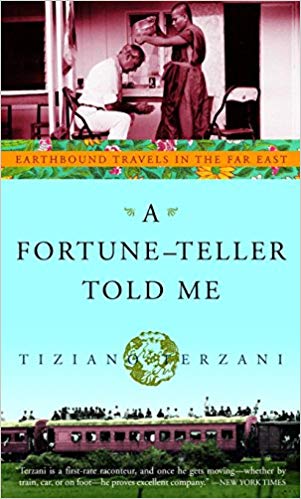[embedyt] https://www.youtube.com/watch?v=JV2d2qcIyvA[/embedyt]
My relationship to the Italian language was one of wonder and fun until I decided to use it professionally.
I took one semester of beginning Italian grammar in college. The class was so slow and boring that I convinced the department head to let me only come for the exams and not for the daily 8am lessons. After one semester of beginning Italian, I went directly into a literature class. Quickly, I learned to speak Italian and practiced with Italian students living at the International House at the University of California at Berkeley. It was a fun and beautiful sounding language. I never thought that I would ever use it for anything useful. I traveled to Italy as a tourist several times and enjoyed communicating with Italians in their gorgeous melodic tongue.
In the summer of 2004, I took a job in Italian wine marketing and suddenly had to use my Italian in professional situations. Having never lived in Italy, this was the only language I used professionally where I hadn’t actually experienced “living” in the language. There is a huge difference in speaking a language well from travel and contact with native speakers and living the language on a day to day basis. (See my post on Language gaps: Lived vs learned languages.) For my wine business job, I had to “live” the language in the US with a crazy Southern Italian boss who was more chaotic than anyone with whom I had ever worked. I remembered his schedule better than he did. He lived in confusion, while the rest of his employees needed order. He called me on the Sunday of Thanksgiving weekend to ask me how I was doing with my clients, not realizing that it was not appropriate to call an employee for a non-urgent matter on a holiday!
Speaking in Italian was tiring
Though I could follow Italian conversations well, I was not used to discussing anything relating to money and business in Italian. The beautiful melodic language was previously reserved for travel, literature, history, movies and general culture. I found myself getting tired more easily when speaking in Italian than in the other Romance languages I spoke (French and Spanish) because of its melodic character and melodrama. It actually took energy to sing as I spoke and be dramatic when I was not used to being so vibrant and theatrical in English. I couldn’t be in the Italian drama or melodrama for too long or otherwise I would get fatigued or think I was just a character in some farce or someone’s jokes. The Italians could talk for a long time and sometimes not say much of anything substantive, but they at least sounded good! I had to see past the fanfare of the language to truly know what people intended by their words.
Learning to be myself

At one of the first wine tasting events I attended, I met an Italian chef named Massimo. He told me about a book called A Fortune Teller Told Me by Tiziano Terzani, insisting that I read it. I found the book at the library and immersed myself in it for an entire weekend, turning off my mobile and home phone so that I could dedicate my time to reading. Tiziano Terzani was a journalist living in Bangkok who had traveled throughout Asia for a year by land or by sea because a Hong Kong fortune had told him that in the year 1993, he would die in an airplane accident and had to avoid airplanes all year. Though the journalist was not a believer in clairvoyants, he followed the advice of the Hong Kong oracle. His tales about his travels fascinated me. I read the book with such hunger, realizing that I too wanted to write about the many adventures and cultures I had experienced. Instead of living vicariously through another person’s travels, I wanted to scribe about my own.
Eventually, selling fermented grape juice was no longer to my liking and I developed a temporary allergy to grapes! I became allergic to many foods that I ate. But when I decided to quit my job and write, the allergies went away. The Italian language brought me to wine selling, to a wonderful Italian author and back to my love for writing! Indeed, Italian transitioned from being a learned language to a language that taught me to live as myself.












